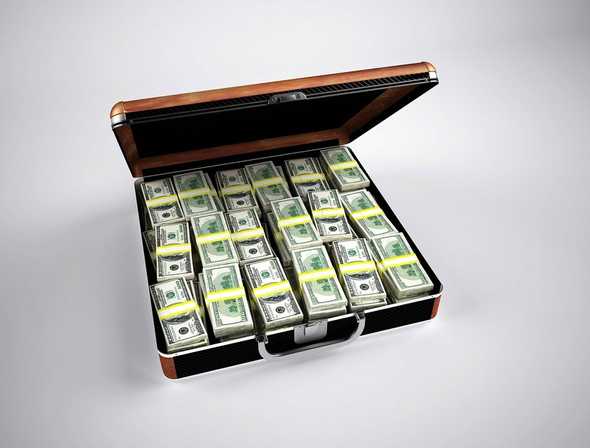Are Lottery Winners Happy?
Everyone dreams of winning the lottery, so they can be happy and never worry about financial problems. But are lottery winners happy after they win millions?
While some studies report lottery winners are happy with their lives, other studies claim that lottery winners are not any more content than anyone else. Happiness comes down to several factors, including previous mental health, how much money people win, and their support systems.
Winning the lottery can make people happy in some ways and miserable in others. Keep reading to discover how happy people are when they win the lottery.
How Is Happiness Measured?
Before discussing whether or not lottery winners are happy, a standard of happiness needs to be established. Everyone measures happiness differently, and one person’s happiness is another person’s misery. There are three different standards where happiness is measured, including day to day feelings, life, and financial satisfaction.
Day-to-Day Feelings
Happiness is an emotion that can change on a whim based on extenuating circumstances. If you are getting yelled at for some mistake, you are not going to be happy. But if you hear that your favorite aunt is coming to visit, your mood changes instantly. The same thing happens when you win a massive jackpot—your happiness becomes intense.
But what happens to your happiness when your car has a flat tire? Instantly, you are upset and frustrated—maybe even worried—about replacing the tire.
The day to day feelings change frequently, so measuring whether or not people who win the lottery are happy is like measuring the wind. It just doesn’t happen.
Lottery winners reported that they had the same happiness level overall after winning that they had before in the day-to-day feelings. As happiness changes moment by moment, measuring whether lottery winners are happy depends on other factors, including life satisfaction and contentment level.
Life Satisfaction
Overall, life satisfaction improved in many people who won the lottery because their situations improved, and they had less stress from debts or how to make ends meet. They were also able to do things they never had a chance to do before they had money.
A lack of money can create frustrations in life and lead to being unsatisfied. But when someone wins the lottery and manages it correctly, a lot of things change, leading to improved life satisfaction.
Financial Satisfaction
When people win a big jackpot and don’t mismanage their funds, they often report that their financial situations are much better, and they are satisfied with the outcome. Financial satisfaction spills into every other part of life, making life easier in many ways.
While lottery winners also have specific stressors due to the extra money, over time, they become used to it and are satisfied with how their financial lives look.
Money Doesn’t Create Happiness
Money can’t buy happiness, as the saying goes. It also can’t create happiness or satisfaction when you’re not mentally healthy before winning a big jackpot. In other words, you can’t create happiness where it doesn’t exist in the first place.
Previous Emotional Health
Money is not therapy, and if your mental health is fragile before winning a massive jackpot, it will not improve with a lot of money. Past lottery winners were surveyed about whether they were happy before winning. Generally, the ones who claimed they were satisfied with life after winning had good mental health before winning.
While money can fix a lot of things, it cannot fix your mental or emotional health, even if you spend thousands of dollars on years of therapy. You may be able to deal with things with treatment, but a lot of money won’t make you happy if you were miserable before winning a lot of money.
Temporary Happiness
Happiness, like rain, is temporary. Extreme happiness only lasts for a little while. The thrill of winning the lottery lasts for so long, and once you get used to having money, your joy will return to its normal state.
It’s called the “Hedonic Adaptation,” and it just means that people return to a healthy state of happiness when a thrill is gone. Many lottery winners have temporary happiness. So yes, lottery winners are happy for a little while.
Happiness “Thermostat”
Often, when extremely positive things happen, people become unusually happy and float on cloud nine. When the newness of those things wears off, it is human nature to go back to the same level of happiness a person felt before the big event. Returning to the previous level of happiness is what is known as a “happiness thermostat.”
If people had a catastrophic accident, it is understandable that they would be depressed for a while. But once the initial shock wears off, their moods would return to the previous mental state before the accident.
Likewise, when someone wins the lottery, they are generally ecstatic and overly happy. Once things settle down and get used to the new normal, they come down and return to the former happiness state. It’s like a thermostat that goes up or down briefly before returning to normal.
Reality vs. Hype
There are several conflicting messages about how happy lottery winners are. Some say they are much more comfortable once they receive their big windfall. Other messages say that they are more miserable once they win. So which is it?
Studies That Say “No”
A study was done in 1978 that compared lottery winners with accident victims and their level of happiness. The average level of happiness once the precipitating events passed were about equal, but lottery winners lost interest in the daily mundane activities they once enjoyed. It might be because those activities don’t hold the same thrill compared with winning a lot of money.
People who succumb to depression after winning the lottery are usually those who do not keep their same routine, such as going to work, meeting with friends, or staying within the same social circle. They don’t have the same type of support, because they think that money will make everything okay.
Studies That Say “Yes”
Other studies show that when people have medium to significant wins, they are generally happier over the long term compared to those who have small wins. They think this may be because people can pay off debts, get a more beautiful house, and have an overall better financial situation.The study also suggested that people become settled into a new routine over time and found other ways to be happy again.
Small vs. Large Winnings
Smaller winnings up to $100,000 did not contribute to happiness for the long term, only because in just a few years, most people spent what they won.
People who won more and were able to put it away for use over time showed a general sense of greater well-being and were better adjusted than those who earned less money or didn’t win anything at all. Substantial prizes created greater life satisfaction, but happiness didn’t increase that much over their pre-winning emotional state.
Of those that won larger prizes, people were also wealthier ten years later than those who won smaller awards, which shoots down the stereotype of lottery winners spending themselves into bankruptcy.
Smaller prizes do not create an increase in personal or financial satisfaction.
Source of Income May Contribute to Overall Mental Health
When someone comes into a large amount of money overnight, it takes a toll on their mental health because of the roller coaster of emotions they experience. It is a lot of stress at first because there are several things to consider and do, such as filling out paperwork, putting together a good team, and creating a financial plan.
All of that causes anxiety, and sometimes, depression before even getting the money.
But when someone earns more money regularly, and they get used to having money gradually over time, they adjust quickly and have better overall mental health. But only up to a point. Once people started earning over $95,000 per year, their well being went back down.
Win the “Right” Amount
As mentioned previously, winning the “right amount” of money contributes to more satisfaction with life, and the ability to be happier, especially with their financial circumstances. The reason is that small amounts of money don’t do anything for the long term unless you can invest smartly.
Small Amounts Don’t Change Lives
Lives don’t change with a $1,000 prize or any small amount up to $100,000. For the most part, people usually use smaller amounts to pay off debts, splurge on some items they wouldn’t be able to afford otherwise or use it for living expenses.
While some people would put a more substantial amount in a savings account or invest in wise stocks, most will spend it. So small prizes don’t change lives too much, so their happiness level would be about the same as before they won.
That’s not to say that winning $80,000 would be a bad thing but in terms of changed lives and overall happiness and satisfaction, winning half a million dollars or more can and does change lives.
Larger Amounts Can Change Finances Forever
Prizes over $1 million have the power to change lives if appropriately managed. Financial experts say that a $30 million take-home prize is the ideal amount that could change your life forever. That way, if you put it into an interest-bearing savings account, you could live on $1 million per year for 30 years. Who wouldn’t be able to live comfortably on $1 million a year?
But are people happier with more money? For the first year, people are more stressed after a massive win because of paperwork and learning to find a new identity associated with being wealthy. Once that stress dissipates, people are happier overall with their lives.
Can More Money Make Your Life Miserable?
The stereotype of people becoming miserable after a vast lottery win is not precisely accurate. But is there a size limit on the prizes people win before they become miserable? It all depends on the individual and what their preferences and lifestyle habits are. Or rather, what they would like them to be.
Some people are happiest living in the woods away from people, and having only nature to keep them company. Other people find great joy in throwing extravagant parties with a large group of people around them.
But researchers say that, for earned income, a person’s happiness level increases to around $75,000, then plateaus over that amount. What about if someone wins $500 million? Their happiness level largely depends on their previous mental health state, as discussed earlier.
More money doesn’t make you any happier. Still, if you were to set up a charitable foundation to help others, like those in the success stories later in the article, you may become fulfilled and happy because you are making a difference for others.
The Time Factor
Depending on when you ask a lottery winner if they are happy or not, you may get different answers from the same person. Ask them right after winning, and they might be the happiest person in the world. Six months later, they may tell you about how stressed they are. Two years later, their emotional state may be stable, and they have a new found love of life.
Lottery winners go through an entire range of emotions right after winning, so asking if lottery winners are happy depends on when you ask them. The better question is if lottery winners stay happy or become more content after the first two years have passed. Do they remain happy five, ten years down the road?
First Year Stresses
As touched on briefly earlier, winners have a lot of stress in the first year after winning the lottery, which is simply due to all the red tape they go through and how much their lifestyle changes.
Their identity also changes because they are no longer poor or middle class, but wealthy. Very wealthy. So it takes a little time for a person to process all those emotions and thoughts, as well as their new station in life. Generally, it takes around two years for someone to settle into their unique identity fully.
Psychological Changes
The best thing you could do if you won the lottery is to hire a therapist for at least two years. Why? Your life, your finances, and your identity will change drastically with a large sum of money. A therapist can help you stay grounded and process your thoughts and emotions to get you through the whirlwind of changes.
You’ll go through several psychological changes during the first six months, which may or may not cause some damage to your future self if you’re not careful. The best thing to do is to stay as anonymous as possible for the first two years. Otherwise, you will have family and friends coming out of the woodwork with their hands out.
You also don’t want to make promises to family and friends you’re not willing to keep when you are celebrating the win. Or they may come calling to have you make good, which does little to contribute to your mental health.
Winners who take their time to adjust are the happiest post-two years.
Subsequent Years
When winners get past the two-year mark, those who won the most substantial prizes are the most well adjusted, especially if they resist the urge to spend a lot of money during those first years.
Long term satisfaction with life ten years later was the biggest findings of researchers who followed up with winners to find that they still had more life and financial joy, but had the same level of happiness as they did before winning.
Use Time to Your Advantage
If you are wondering if you will be happy if and won the lottery, the most significant advice you should follow is to use the first two years to your advantage. If you do the following during those years, you should be in the clear past two years.
- Keep your win to yourself and your newly assembled team. If you tell a lot of people, you could either end up harassed or killed at worst.
- Assemble your professional team consisting of a lawyer, financial advisor, a tax advisor, and a therapist. These professionals will guide you through the most stressful time of your life.
- Create a financial plan, so you resist the urge to go on a spending spree. When you keep more of your money after a large win, you will be happier in later years because of few regrets.
Cautionary Tales
The following people were victims of “too much too soon” and either lost all their money or died because of winning the lottery. Not everyone who wins has these problems, but their stories are here to caution you against their mistakes should you ever win the lottery. Once you read through these stories, be sure to lift your spirits by reading the success stories of past winners.
Jack Whittaker
Jack Whittaker was not the average Powerball winner as he had a net worth of $17 million through being the president of a contracting firm before winning $314.9 million. So he already had experience with a lot of money and his identity was that of a wealthy man.But after he won the largest Powerball jackpot of the time in 2002, his life took a worse turn. Right after winning, he donated 10% to Christian charities and started his foundation, which gave clothes and food to low-income families in the area. The good deeds he did were not enough to keep trouble out of his life.
About a year later, thieves broke into his car because he had a suitcase with $545,000. Why he would do that is beyond most people. But soon after that, he had another briefcase with $200,000 in it that was stolen. It was recovered, however.
People schemed to take his life; his granddaughter was later found dead at her boyfriend’s residence, the cause of which was a drug overdose; and he had at least one DUI that went to court two years later.
He gambled many times and bounced checks upwards towards $1.5 million to cover his losses. Five years after his granddaughter was found dead, his daughter was found dead, with no determined cause.
The story wraps up with his home burning to the ground, but it was not insured. He later said that he wished he tore up the ticket once all the bad things happened.
Alex Toth
The stereotypical lottery winner, Alex Toth, died penniless at the age of 60 in 2008, even though he won the Florida lottery jackpot of $13 million in 1990. He and his wife, Rhoda, lived it up while they had their money. But in 2006, they went to trial because of filing fraudulent tax returns.
They had no assets and lived in slum-like conditions. Their means of electricity was an extension cord plugged into their car engine.
When Alex won, he chose the annuity payments to be paid over 20 years. But in 1999, he sold their payments for two lump sums of around $1 million each payable to both Alex and his wife, Rhoda. They then gambled and spent all of that within a matter of a few years.
Neither one was happy, and they suffered from chronic anxiety and clinical depression.
Evelyn Baseshore
Evelyn Baseshore was the most unlucky luckiest lottery winner ever recorded. She won two jackpots over $1 million in as little as five months with the same game. The first jackpot was $3.9 million, and the second jackpot was $1.4 million.What made her unlucky was her spending habits and open generosity towards her friends. She spent money like it was water, and whenever people asked her for money, she would hand it out to them, no questions asked. She gambled the rest of it away at casinos. But she claimed that people were like vultures and had their hands out all the time. She went broke in 2000, but still plays the lottery whenever she can.
Success Stories
As tragic as the above stories are, there are many more lottery winners who used their winnings for charitable purposes. Here are just a few winners who did something great with their jackpots.
Sandra Hayes
A social worker by trade, Sandra Hayes won a $224 million Powerball jackpot with 12 other people, making her take-home lump sum worth just under $8 million. While people tried to take advantage of her, she didn’t give in. She even researched one woman’s story about losing her house due to unpaid taxes. The woman’s house was paid up, so Sandra did not give her any money.
When she got her money, she paid off her house, her debts, and those of her children. She also donated some money to charitable organizations that help domestic violence victims.
She retired and now lives on a budget so that she won’t run out of money before she dies. She spends her time gardening, cooking, and working on hobbies she didn’t have time for when she worked. Overall, she is delighted and doing what she loves.
Neal Wanless
Neal Wanless was 23 years old when he won South Dakota’s biggest lottery in 2011. After taking the lump sum payment, minus taxes, he went home with $88.5 million. Instead of living it up like most people, Neal bought 320 acres of ranch land and is now living his dream of being a rancher.He lives modestly and doesn’t feel the need to be extravagant with his winnings. After all, before he won, he was eking out an existence selling scrap metal.
Les Robins
A former teacher, Les Robins, now runs a summer camp for kids. In 1993, he won $111 million and used part of it to buy a 226-acre plot of land to start Camp Winnegator near Fond du Lac, Wisconsin. He wanted to provide a space for children between the ages of 9 and 16 to be able to hang out, play sports, and enjoy their summers during the day while their parents worked.
It is still there after 23 years. Les avoided the “dreaded curse” of lottery winners and used the money to help others rather than himself.
Conclusion
The happiness of lottery winners depends on the person, and not on the amount they win. If someone is naturally unhappy, selfish, or greedy, and is unhappy with little to no money, they won’t be happy with a lot of money either.
Donating to charities, setting up charitable foundations, or even living frugally, helps you enjoy having money without the chaos that it can bring. You can share your money in a controlled manner through trusts or well-known organizations while you don’t need to give money to everyone with a good sob story.
Happiness doesn’t have to go away once you win the lottery. If you manage yourself and your habits well, you will find excellent life satisfaction.









